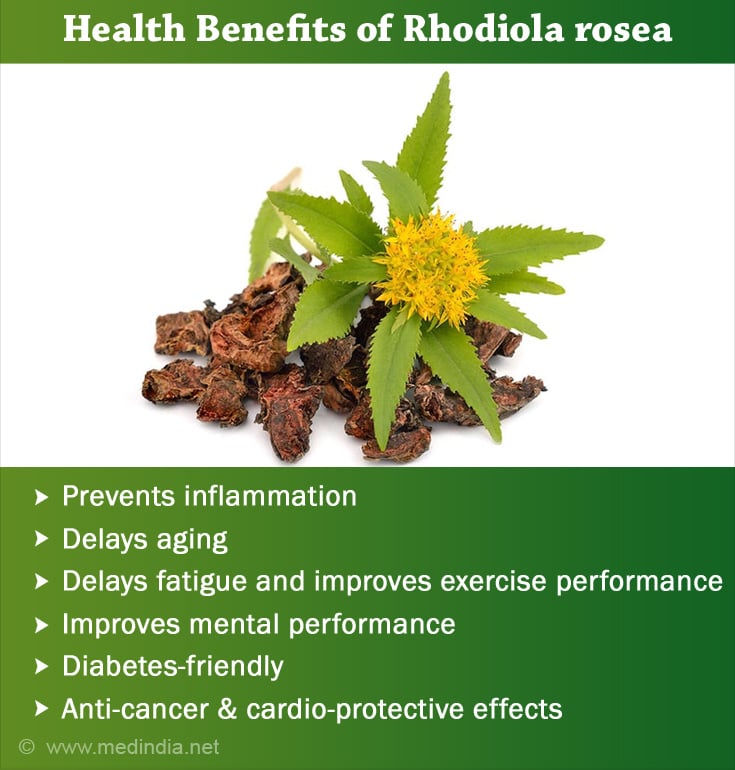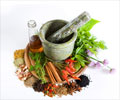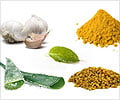- Rhodiola plants: Chemistry and biological activity - (https://www.sciencedirect.com/science/article/pii/S1021949815000563)
- Effects of Rhodiola Rosea Supplementation on Exercise and Sport: A Systematic Review - (https://www.frontiersin.org/articles/10.3389/fnut.2022.856287/full)
- Rhodiola plants: Chemistry and biological activity - (https://www.sciencedirect.com/science/article/pii/S1021949815000563)
- Effects of Rhodiola Rosea Supplementation on Exercise and Sport: A Systematic Review. - (https://www.frontiersin.org/articles/10.3389/fnut.2022.856287/full)
- Rhodiola rosea L. Improves Learning and Memory Function: Preclinical Evidence and Possible Mechanisms - (https://www.frontiersin.org/articles/10.3389/fphar.2018.01415/full)
- Rhodiola Rosea - (https://www.mhanational.org/rhodiola-rosea)
- Rhodiola rosea L. Improves Learning and Memory Function: Preclinical Evidence and Possible Mechanisms - (https://www.frontiersin.org/articles/10.3389/fphar.2018.01415/full)
- Rhodiola Rosea - (https://www.mhanational.org/rhodiola-rosea)
- Rhodiola rosea L.: an Herb with Anti-Stress, Anti-Aging, and Immunostimulating Properties for Cancer Chemoprevention - (https://doi.org/10.1007/s40495-017-0106-1)
- Stress Tonic: rhodiola tea - (http://www.wonderfulingredients.com/stress-tonic---rhodiola-tea)
- Rhodiola rosea L.: an Herb with Anti-Stress, Anti-Aging, and Immunostimulating Properties for Cancer Chemoprevention. - (https://doi.org/10.1007/s40495-017-0106-1)
- Beet Turmeric Latte with Rhodiola Rosea (Paleo, Vegan) - (https://greensofthestoneage.com/beet-turmeric-latte-with-rhodiola-rosea/)
- Stress Tonic: rhodiola tea - (http://www.wonderfulingredients.com/stress-tonic---rhodiola-tea)
- Beet Turmeric Latte with Rhodiola Rosea (Paleo, Vegan) - (https://greensofthestoneage.com/beet-turmeric-latte-with-rhodiola-rosea/)
- Rhodiola Rosea, the Golden Root - (https://www.beautytherapyabsolution.com/en/eat/rhodiola-rosea/)
- Rhodiola Rosea, the Golden Root - (https://www.beautytherapyabsolution.com/en/eat/rhodiola-rosea/)
- Complementary & Alternative Medicine for Mental Health - (https://www.mhanational.org/sites/default/files/MHA_CAM.pdf)
- Complementary & Alternative Medicine for Mental Health - (https://www.mhanational.org/sites/default/files/MHA_CAM.pdf)
What is Rhodiola rosea?
Rhodiola is a genus from the Crassulaceae family, containing more than 200 species of which some are well-known for their medicinal benefits. Extracts of Rhodiola plants are used in tonics and supplements. Rhodiola rosea, popularly known as "arctic root", "roseroot" or "golden root" is a perennial herb that is native to Siberia, North America, East Asia, and Central Asia, and is used in different parts of the world for different purposes. It is also called the adaptogenic herb for its ability to resist both physical and emotional stress and help fight depression and fatigue. The plant displays pharmacological effects such as anti-inflammatory, anti-depressant, antibacterial, and immunotropic activities, stimulating the central nervous system, increasing life span, and extending protective effects on the heart, nerves, and liver. Recently, Rhodiola rosea extract is used in commercial pharmaceutical formulas, and as drink and food additives(1✔ ✔Trusted Source
Rhodiola plants: Chemistry and biological activity
Go to source, 2✔ ✔Trusted Source
Effects of Rhodiola Rosea Supplementation on Exercise and Sport: A Systematic Review
Go to source).
What are the Health Benefits of Rhodiola rosea?
Research has demonstrated various health benefits of Rhodiola rosea, which is discussed below -
- Anti-fatigue activity: Performance improvement in association with golden root extract intake has been reported by studies. Administering extracts of Rhodiola rosea showed to increase concentration, and mental performance, and reduced cortisol response to stress among patients with fatigue syndrome(1✔ ✔Trusted Source
Rhodiola plants: Chemistry and biological activity
Go to source). - Improved Exercise Performance: Athletes using Rhodiola rosea experienced improved physical performance and endurance. The plant also exhibits energy-replenishing effects, augmented antioxidant capacity, and prevents muscle fatigue. Chronic supplementation has been shown to turn down the incidence of skeletal muscle injury post an exhaustive exercise routine(2✔ ✔Trusted Source
Effects of Rhodiola Rosea Supplementation on Exercise and Sport: A Systematic Review
Go to source). - Cognitive Effects: The effect of Rhodiola extract on mental function has been widely studied by researchers. Rhodiola rosea has been demonstrated to improve cognitive function, promote the mitigation of free radicals, stimulate central nervous system activity and spike the production of neurotransmitters. A study also found Rhodiola rosea supplementation portrayed beneficial effects on dementia(3✔ ✔Trusted Source
Rhodiola rosea L. Improves Learning and Memory Function: Preclinical Evidence and Possible Mechanisms
Go to source).
- Mental Health Implications: Rhodiola is a promising ingredient in the treatment of several mental health conditions such as stress, depression, anxiety, and exhaustion. Limited studies have found moderate doses of Rhodiola extract may be useful in treating people with bipolar disorder, and studies describe the herb as a natural antidepressant. It may be used as an adjunctive therapy to treat symptoms of depression, anxiety, sleep disturbances, stress, and poor memory. However, it is advisable to consult a health professional before consumption(4✔ ✔Trusted Source
Rhodiola Rosea
Go to source). - Anti-aging Effects: Animal studies found that extracts of rosea increased the life span and retards the decline in age-related physical activity, and immunity, and improved resistance to stress(5✔ ✔Trusted Source
Rhodiola rosea L.: an Herb with Anti-Stress, Anti-Aging, and Immunostimulating Properties for Cancer Chemoprevention
Go to source). - Anti-diabetes Effect: Diabetes and oxidative stress have been shown to exhibit strong associations. Animal studies found that rosea administration displays hypoglycemic effects by bringing down fasting blood glucose levels and increasing serum insulin levels. It also increases antioxidant levels such as superoxide dismutase and glutathione peroxidase(1✔ ✔Trusted Source
Rhodiola plants: Chemistry and biological activity
Go to source). - Anti-inflammatory Activity: Extracts of Rhodiola rosea showed to shut down the expression of inflammatory C-reactive protein and creatinine kinase among individuals who underwent an exhaustive exercise routine and may also help protect against muscle damage(1✔ ✔Trusted Source
Rhodiola plants: Chemistry and biological activity
Go to source). - Skin-friendly: Rhodiola rosea has been shown to exhibit promising effects on skin health. It helps in wound healing, improves skin barrier function by preventing trans-epidermal water loss, and inhibits melanin synthesis, thereby promoting skin whitening(1✔ ✔Trusted Source
Rhodiola plants: Chemistry and biological activity
Go to source). - Cardio-protective Effects: Studies that explored the cardio-protective effects of the Rhodiola plant discovered positive outcomes. The extracts of the golden root may help in lowering blood pressure, preventing stress-induced cardiac damage, and preventing arrhythmia(1✔ ✔Trusted Source
Rhodiola plants: Chemistry and biological activity
Go to source). - Anti-cancer Properties: The anti-cancer effects of the plant are mainly due to its ability to inhibit cell proliferation and induce apoptosis in cancer cells. Studies also reported that supplementation of rosea among patients with superficial bladder carcinoma reduced the frequency of relapse(5✔ ✔Trusted Source
Rhodiola rosea L.: an Herb with Anti-Stress, Anti-Aging, and Immunostimulating Properties for Cancer Chemoprevention
Go to source).

Recipes
Rhodiola rosea is available in different forms, such as powders, capsules, tablets, sachets, dried roots, tinctures, and supplements. There are several interesting recipes made using this plant.
- Rhodiola Tea: This de-stress tea has a rosy flavor with a slightly tart taste. To make this tea, steep the roots in hot water for 12 minutes in a jar. Stir the mixture before straining, and allow it to cool for a while. Add honey for taste, stir well, and serve(6✔ ✔Trusted Source
Stress Tonic: rhodiola tea
Go to source). - Beet Rhodiola Latte: To make this latte, add cinnamon, ginger, pepper, ground cardamom seeds, rosea tincture, turmeric powder, and beetroot juice in a saucepan. Whisk the beetroot juice with the spices to avoid lumps. On low heat, simmer the mixture and strain it into a cup. In another pan, heat milk and froth the milk using an electric whisk. Pour the milk into the beet latte cup and serve. Vanilla extract and maple syrup can be added to enhance the taste and flavor(7✔ ✔Trusted Source
Beet Turmeric Latte with Rhodiola Rosea (Paleo, Vegan)
Go to source). - Rosea Lemonade: This is a refreshing drink that comes with several health benefits. Make a decoction using dried Rhodiola roots by boiling them in a saucepan. Add rose buds, allow it to infuse overnight, and filter the next morning. Add goji berry powder, lemon juice, sweetener of choice, and ice cubes. Serve cold(8✔ ✔Trusted Source
Rhodiola Rosea, the Golden Root
Go to source).
Side Effects of Rhodiola rosea
Studies conducted on the herb have not reported any severe side effects so far. Mild effects that may be experienced include allergies, insomnia, irritability, chest pain, high blood pressure, agitation, anxiety, and headache(9✔ ✔Trusted Source
Complementary & Alternative Medicine for Mental Health
Go to source).
Nutritional Facts of Rhodiola rosea
The Rhodiola genus consists of more than 100 functional compounds in their roots and rhizomes, such as aryl glycosides, flavonoids, flavonolignans, proanthocyanidins, gallic acid derivatives, and monoterpene alcohols. The primary components that determine the medicinal properties of Rhodiola rosea are benzophenones, salidroside, caffeic acid, Rhodiola glycosides, protocatechuic acid, gallic acid, epigallocatechin gallate, and the rosavins (rosavin, rosarin, rosin, rhodionin, and rhodiosin). The presence of these health-benefiting components explains the herb being called a medicinal plant(2✔ ✔Trusted Source
Effects of Rhodiola Rosea Supplementation on Exercise and Sport: A Systematic Review
Go to source, 5✔ ✔Trusted Source
Rhodiola rosea L.: an Herb with Anti-Stress, Anti-Aging, and Immunostimulating Properties for Cancer Chemoprevention
Go to source).







